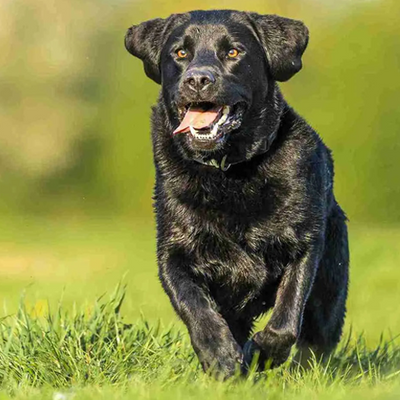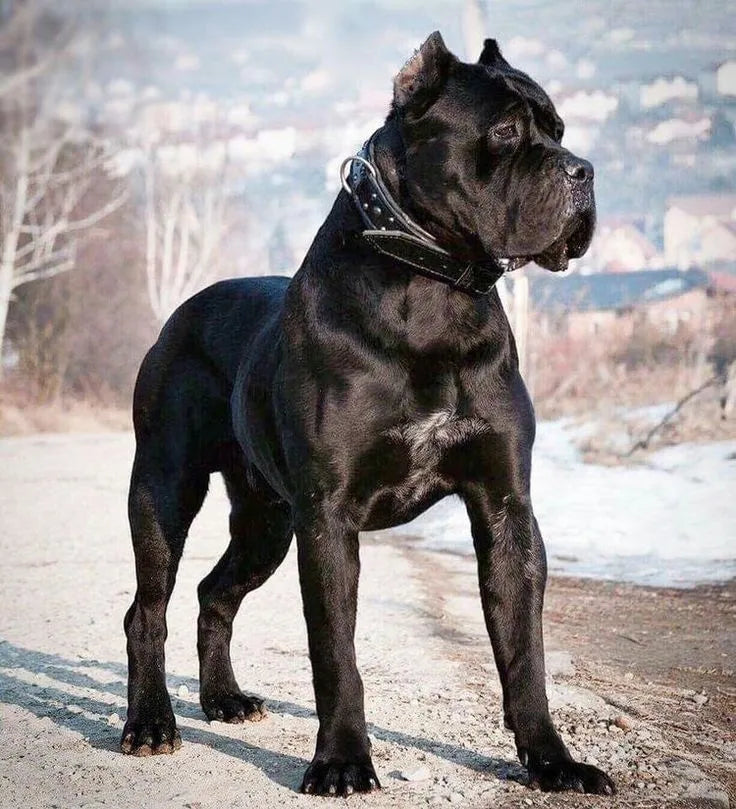Cane Corso
Cane Corso
America’s Powerful and Protective Guardian
1. Introduction to the Breed
The Cane Corso, surging to the #14 spot in the 2024 American Kennel Club (AKC) rankings from ~50th a decade ago, is a formidable breed admired for its power, loyalty, and protective instincts. Known as the “Italian Mastiff,” this majestic dog combines strength with a calm, confident demeanor, making it an ideal guard dog and devoted family companion. Their imposing presence and deep devotion thrive in homes where experienced owners can provide structure, making them a standout choice in rural or suburban settings.
2. History of the Breed
Originating in Italy, the Cane Corso descends from ancient Roman war dogs, later used as farm guardians, hunters, and protectors in the Middle Ages. Their name derives from the Latin cohors, meaning “guardian” or “protector.” Nearly extinct after World War II, the breed was revived in the 1980s by Italian enthusiasts. Recognized by the AKC in 2010, Cane Corsos gained rapid U.S. popularity for their guarding abilities and loyalty, appearing in security roles and as imposing yet loving family pets.
3. Physical Characteristics
- Typical Size and Weight: Cane Corsos are large, standing 23.5–27.5 inches tall at the shoulder. Males weigh 100–120 pounds, while females range from 80–100 pounds, with a muscular, athletic build.
- Coat and Color: Their short, dense coat is coarse, coming in black, gray, fawn, red, or brindle, often with a black or gray mask. The coat sheds minimally but requires regular care.
- Distinctive Features: Cane Corsos have a broad, imposing head, deep-set eyes, and a strong jaw, exuding strength. Their docked (or natural) tail and cropped (or uncropped) ears enhance their alert, regal appearance.
4. Personality Traits
Cane Corsos are loyal, confident, and protective, with a calm yet vigilant demeanor that makes them exceptional guard dogs. They form deep bonds with their families, showing gentleness with children and familiar pets when well-socialized, but their territorial instincts require careful management. Aloof with strangers, they need strong leadership to channel their protective nature. Their intelligence and sensitivity demand engagement to prevent boredom or anxiety, making them ideal for owners who value a devoted, powerful companion.
5. Care Requirements
- Exercise Needs: Cane Corsos need 60–90 minutes of daily exercise, including brisk walks, jogging, or strength-based activities like tugging. Mental stimulation through training or guard tasks keeps them fulfilled.
- Grooming Needs: Their short coat requires weekly brushing with a firm brush to remove loose hair. Regular ear cleaning, nail trimming, and dental care prevent infections and maintain health. Baths every 6–8 weeks keep their coat clean, especially in dusty environments.
- Dietary Considerations: A high-protein diet supports their muscular physique, with foods containing glucosamine for joint health. Portion control prevents obesity, which can strain their large frame, and owners should ensure fresh water to support their active lifestyle.
6. Health and Lifespan
Cane Corsos have an average lifespan of 9–11 years. Common health issues include hip dysplasia, bloat (gastric dilatation-volvulus), and elbow dysplasia. Some may develop cherry eye or entropion (eyelid issues). Regular vet checkups, joint screenings, and a healthy lifestyle mitigate risks. Owners should monitor for bloat symptoms after meals and avoid overexertion in hot weather, as their large size increases heat sensitivity. Genetic testing from breeders reduces hereditary issues.
7. Training and Socialization
Cane Corsos are intelligent and responsive but require firm, consistent training due to their strong-willed nature. Positive reinforcement with treats, praise, or play works best, avoiding harsh methods that can cause resistance. Early socialization is critical to temper their protective instincts, exposing them to strangers, children, and other animals to ensure confidence and balance. Obedience training, starting in puppyhood, manages their guarding tendencies, and activities like protection training or weight-pulling channel their strength effectively.
8. Ideal Home Environment
Cane Corsos thrive in homes with secure, spacious yards, such as rural or suburban properties, where they can patrol and exercise. They’re best suited for experienced owners who can provide leadership and structure. Families with older children benefit from their protective yet gentle nature, but supervision is needed with younger kids due to their size. Apartments can work if exercise needs are met, but a fenced yard is ideal to prevent wandering. Owners should ensure a calm, controlled environment to match their vigilant demeanor.
9. What’s the Best Toy for My Cane Corso?
Cane Corsos enjoy toys that match their powerful build and intelligent nature, engaging their strength and mental focus. Durable chew toys made of tough rubber withstand their strong jaws, providing 20–30 minutes of chewing satisfaction, especially when stuffed with treats for mental stimulation. Heavy-duty rope toys for tugging tap into their love for physical challenges, ideal for 15–20 minute interactive sessions with owners to build bonds. Large, sturdy balls for chasing encourage moderate exercise, suiting their athleticism for outdoor play. Interactive puzzle toys with treat compartments challenge their problem-solving skills, keeping them occupied indoors for 10–15 minutes. Avoid flimsy or small toys, as Cane Corsos can destroy them quickly, posing a choking risk. Rotate toys regularly and pair with training to maintain engagement.
10. Adoption and Breeder Tips
Choose breeders affiliated with the Cane Corso Association of America, ensuring health clearances for hips, elbows, eyes, and heart conditions. Visit the breeder to assess puppy health, meet parents for temperament insights, and confirm ethical practices, including socialization and clean facilities. Rescues like Cane Corso-specific organizations or local shelters offer adoptable dogs, often with detailed histories. Avoid puppy mills, as Cane Corsos are prone to health issues if poorly bred. Ask about genetic testing, socialization practices, and the breeder’s experience with guardian or companion lines to ensure a healthy, well-adjusted dog






0 comments